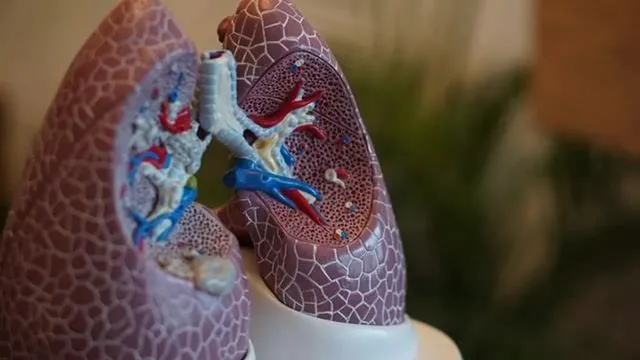
Revolutionary Microcellular "Drones" Deliver Lifesaving Drugs to Combat Lung Cancer
2024-11-12
Author: Nur
Introduction
Lung cancer remains one of the most significant public health challenges, particularly Non-Small Cell Lung Cancer (NSCLC), which is the most prevalent form of this disease in non-smokers. Globally, lung cancer is a leading cause of cancer deaths, necessitating urgent innovations in treatment. The challenge lies not only in the disease's severity but also in the rapid development of drug resistance due to genetic mutations in cancer cells, which often outpaces the effectiveness of conventional small molecule therapies.
Breakthrough Study
A pioneering new study led by Assistant Professor Minh Le at the National University of Singapore's Yong Loo Lin School of Medicine has unveiled promising breakthroughs using nanosized particles derived from red blood cells, repackaged as drug delivery "drones." These engineered particles serve as delivery platforms for antisense oligonucleotide (ASO) therapies designed to specifically target and suppress lung cancer cell growth.
Research Collaboration
In partnership with renowned institutions such as the Cancer Science Institute of Singapore and the Agency for Science, Technology and Research (A*STAR), the research aims to combat the prevalent mutant Epidermal Growth Factor Receptors (EGFRs), which are primarily responsible for lung cancer in Asian patients. Current therapies focus on tyrosine kinase inhibitors that can fall short over time due to cellular mutations. The research team's goal was to develop ASO therapies that not only counteract drug resistance but also personalize treatment to cater to the unique genetic makeup of each patient's cancer.
Mechanism of Action
ASOs are designed to bind to specific RNA sequences, disrupting the improper function of genes involved in cancer progression. This precision makes them particularly advantageous in treating NSCLC, which often evolves resistance to existing therapies. However, a significant obstacle has been the degradation of ASOs in the bloodstream, which limits drug concentration at tumor sites.
Innovative Delivery Method
To tackle this, the study creatively harnesses extracellular vesicles (EVs) derived from human red blood cells. By engineering these EVs to attach to the mutant EGFRs, the researchers direct the ASO-encased EVs to the tumor sites, enhancing the delivery of the treatment. Importantly, this method has displayed a robust anti-cancer effect across various lung cancer models, including those sourced from patient cells.
Expert Insight
“With this innovative approach to using EVs for drug delivery, we are taking a significant step toward personalized cancer therapies that specifically eliminate mutant EGFR cancer cells without damaging normal tissues,” noted Associate Professor Tam Wai Leong, Deputy Executive Director of A*STAR Genome Institute of Singapore and co-author of the study. This advancement not only addresses the pressing issue of drug resistance but also promotes the deployment of individualized cancer treatment strategies.
Publication and Impact
The study, published in the journal eBioMedicine, marks a critical juncture in cancer treatment, showcasing the potential of customized RNA therapies in revolutionizing the fight against malignancies like NSCLC. As researchers continue to explore the efficacy of this ASO-EV combination, the hopes for more effective and targeted cancer therapies grow ever stronger.
Future Directions
This groundbreaking strategy could redefine lung cancer management and sets a foundation for future research into delivering potent therapies for various types of cancer, paving the way toward a new era of personalized medicine.

 Brasil (PT)
Brasil (PT)
 Canada (EN)
Canada (EN)
 Chile (ES)
Chile (ES)
 España (ES)
España (ES)
 France (FR)
France (FR)
 Hong Kong (EN)
Hong Kong (EN)
 Italia (IT)
Italia (IT)
 日本 (JA)
日本 (JA)
 Magyarország (HU)
Magyarország (HU)
 Norge (NO)
Norge (NO)
 Polska (PL)
Polska (PL)
 Schweiz (DE)
Schweiz (DE)
 Singapore (EN)
Singapore (EN)
 Sverige (SV)
Sverige (SV)
 Suomi (FI)
Suomi (FI)
 Türkiye (TR)
Türkiye (TR)